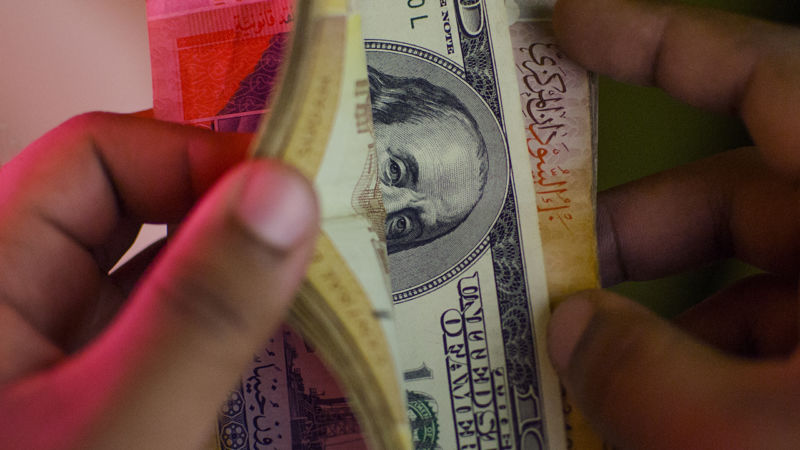As fraud rises in a post-pandemic world, the most vulnerable groups are at risk of being defrauded out of the benefits they desperately need
In the United States, the Supplemental Nutrition Assistance Program (SNAP), Medicare, and Medicaid are set up to provide food and medical care to those with the greatest economic or medical needs, and these benefits are critical to provide these necessities regularly.
As the global pandemic raged throughout 2020 and 2021, these benefits became even more essential, especially as more people became eligible because of the economic disruption caused by the pandemic. For example, SNAP benefits made sure that parents could feed children when they were no longer able to access the school lunch program. While the entire world coped with the ramifications of the pandemic, these programs served their purpose, and ultimately, they dulled the impact of a bad situation.
SNAP
As we return to a relatively normal state, USDA Deputy Under Secretary for Food, Nutrition & Consumer Services Stacy Dean confirms that after refraining from auditing these programs in 2021 and 2022, the practice will be resuming. “The first state-by-state set of payment error rates coming out of the pandemic reflects the challenging circumstances under which the state agencies were operating, and from which many are continuing to recover,” Dean said, adding that the “USDA is committed to supporting states in improving payment accuracy in SNAP to ensure the program effectively and efficiently serves those who need it and promotes good stewardship of taxpayer dollars.”
One of the fraud concerns with SNAP benefits is skimming, which is an illegal scheme in which a criminal places a device on an ATM or on a retailer’s card-swiping machine to copy electronic benefit transfer (EBT) card information. After the information is stolen, the criminal can clone the card and take over the victim’s accounts, stealing their benefits. Skimming and theft of benefits is a rising concern. In 2022, North Carolina experienced an approximate loss of $338,000; however, in the first half of 2023, the reported amount is already up to $1,342,000 — a stunning fourfold increase with the year not yet over.
Skimming is being addressed on a few fronts. In late-December 2022, Congress passed a law to protect and replace SNAP benefits stolen via card skimming, card cloning, and other similar methods. This will make it easier for individuals in need to get their benefits. The USDA Food and Nutrition Services (FNS) is also identifying suspicious EBT transactions and sharing in real time the locations where thieves are attempting to use cloned cards. FNS also conducts outreach with state and local partners to increase awareness of current SNAP fraud trends and to assist those states with limited resources.
In addition to the problems created by skimming, there were also issues with benefits that were inappropriately issued to retailers. In some cases, retailers are allowing the purchase of goods not covered by the program, such as alcohol. In other cases, retailers are inflating the cost of items and providing cash back to customers for a fee. In both scenarios, the funds are being diverted from the intended use.
Medicare
During the pandemic, medical coverage was increasingly important. Individuals needed insurance if they fell ill and needed care, especially when there was a medical emergency. Medicare and Medicaid programs provide medical coverage for the most vulnerable population, and it can be the difference between life and death. The elderly and lower-income individuals can barely afford necessities, and a visit to the hospital could lead to fiscal ruin.
Most medical scams start with phishing phone calls, which often start by creating a sense of urgency and worry. During the phishing call, the scammer collects personal identifying information, including a medical card number, Social Security number, or date of birth, among other information, which then can be sold on the dark web for a profit. Stolen personal information can lead to cloned accounts used to fraudulently obtain medical services, or even billing for services that were never rendered. The immediate financial loss in this case falls on the shoulders of a program with a limited budget and diverts funds intended to help those in need. This also creates a risk that necessary medical coverage will be denied or flagged as previously completed.
In addition to the financial loss to the government-funded program, there are risks of fraud that can harm the individual. Hacked accounts and stolen information can be used to create synthetic identities, which are created when a portion of real information is combined with false information and then used to take out loans, credit cards, and open new accounts without proper permission. These accounts can cause thousands of dollars in losses for businesses, and often it will take hours to sift through real and fake accounts to properly resolve the issue.
A 2022 report from the Identity Theft Resource Center found that “more than half of all current identity theft cases are unresolved — up from 37% in 2021.” This means that the loss created is also getting harder to identify, correct, or punish.
As we move further from the pandemic, it will be more important than ever to stand against fraud and protect the nation’s most vulnerable citizens. This includes establishing measures to properly secure their personal information and ensuring that all U.S. citizens are properly educated about protecting their own individual medical and financial information.







